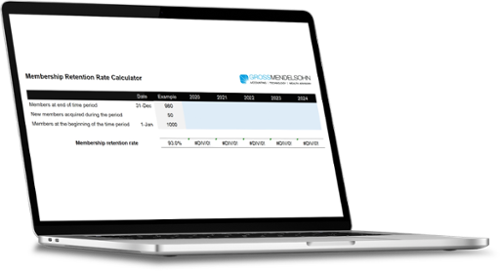Many nonprofit associations get anxious in anticipation of their yearly audit, but there are ways you can make the process less stressful. Here are five tips from our audit team on how to take some of the stress out of your association’s yearly audit.
1. Be Ready
If they don’t automatically provide one, ask your CPA firm for a list of items they’ll need during the audit, with deadlines for each item. It’s good to talk to your CPA before fieldwork if you have questions about any of the items, and let them know if you won’t be ready by the deadlines.
Because a certain amount of surprise procedures are required in an audit, you’ll also need to produce some information on the spot, such as specific expense reports, journal entry support, or grantor or program reports. However, you can prepare by establishing files during the year to collect the information you may need.
If in doubt, ask your CPA firm what you can do to best prepare for the audit.
2. Have Realistic Expectations
CPA firms once did accounting “clean-up” work for their clients during the audit, such as preparing year-end journal entries, fixed asset schedules, and various prepaid expense and accrued liability analyses. Today’s professional standards draw a clear line between accounting and auditing services, and your CPA firm will need to stay independent of your accounting processes.
If there are accounting tasks your association can’t complete internally due to a lack of expertise, your CPA firm should be able to recommend another firm who can help.
3. Minimize Your Risks Year-Round
It’s important to evaluate whether your team follows your association’s policies and procedures on a regular basis. If you don’t have one already, you can tackle creating a policy or procedural manual one step at a time, such as writing memos to outline procedures as you complete them.
If your operations have changed or evolved, discuss these developments with your CPA firm during the year and update your policies and procedures accordingly. Waiting until fieldwork begins to let your CPA know about changes can delay the audit process.
4. Be Prepared to Deal With Any Control Deficiencies
Your CPA firm will apply risk standards during the audit. The AICPA Statement on Auditing Standards No. 115, Communicating Internal Control Related Matters Identified in an Audit (SAS 115), defines deficiencies in internal control and other “material weaknesses” and “significant deficiencies.”
For example, the CPA firm will look to see if there’s:
- More than one person handling cash receipts and reviewing and approving cash disbursements and payroll
- A second person authorizing contracts and their payment
- Adequate oversight of your checks and balances system
After reviewing the risk and internal control information you’ve assembled, your CPA could determine there is a “significant deficiency” or the more serious “material weakness,” which would be noted in your association’s management letter.
For any matter identified in the SAS 115 letter, your association will need to prepare a written response, including whether you have taken or intend to take any action in response to the finding. This is important to the audit committee and board as they oversee the audit and the overall system of checks and balances.
You can learn more by reading Using Internal Controls to Protect Your Nonprofit Association From Fraud.
5. Stay In Touch
The annual audit shouldn’t be the only time you talk to your CPA firm. If you save all your questions until your annual audit, you’ll likely extend the length of the audit.
For example, it’s important to check in with your CPA before the audit to see if there are new accounting pronouncements or changes for the year. If your CPA firm doesn’t reach out to keep you up to date on new rules and changes, that’s usually a red flag that you’re not getting the best quality of service. With that said, it’s important to be proactive in understanding the new guidance and its impact on your next audit and future financial reporting.
In the End
Although the audit and the preparation that precedes it requires a good bit of work, the benefits are plentiful. An audit not only assesses your overall financial condition but can also pinpoint problems with financial management and financial reporting, identify ways to reduce risk and strengthen internal controls.
A CPA firm must maintain independence, but an audit does not have to be an adversarial process. Communication is key, so make sure you understand why your CPA is performing certain procedures. You may even be able to identify something that could accomplish the same goal more efficiently.
Need Help?
Contact us online or call 800.899.4623.


